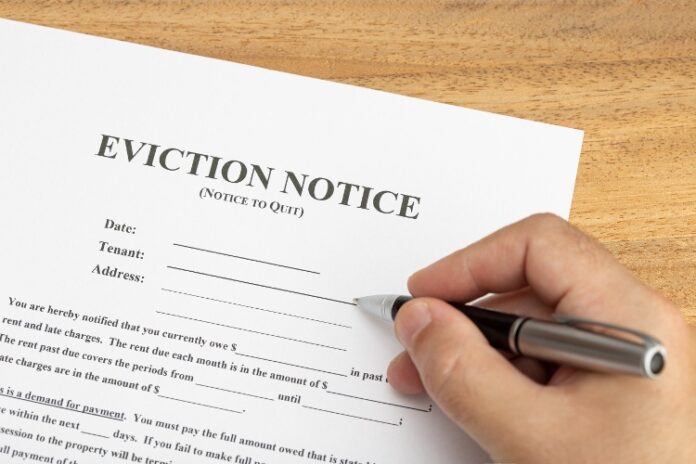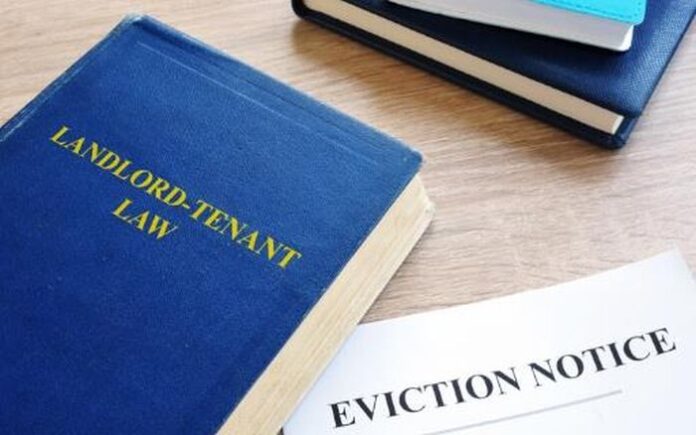Having a problematic tenant can severely disrupt your rental property management strategy. If they don’t pay rent, they could cause you to lose money every month. If they damage your property, they could force you to accrue unnecessary expenses. If they conduct illegal activities in your property, it could damage property values in the neighborhood and result in even further headaches down the line.
If and when your tenant demonstrates problematic behavior, you may be tempted to evict them as quickly as possible. But while this is sometimes the appropriate course of action, it’s usually better to take a moment, strategize, and prepare for the smoothest eviction possible.
Why Evictions Are Best Avoided

In most cases, evictions are best avoided. No landlord should ever want to evict a tenant, as it creates several independent problems.
- Money. Evictions can be expensive, and for more than one reason. If you need to take the matter to court, you could rack up unreasonable levels of legal expenses. If your tenant refuses to pay rent or pay for repairs, you could suffer significant losses. And on top of that, every month you spend fighting with your tenant is a month you won’t be collecting rent.
- Time. Managing an eviction is also time consuming. It can take many hours to handle your responsibilities, even if you’re working with a lawyer or property manager. And if the case becomes complicated, it could take many months to resolve.
- Stress and uncertainty. Dealing with an eviction is an incredible headache, leaving you with stress and uncertainty for the duration of this time. Being a landlord is tough, and this is one of the most challenging aspects of the job.
Talk to Your Property Manager

If you’re already working with a property management company, there’s some good news. Your property manager can do most of the eviction work on your behalf. They can work with your tenant to resolve the issue, submit an initial eviction notice, and even coordinate with lawyers to make sure the eviction runs as smoothly as possible.
The only problem here is that you need to be working with a property management company in the weeks and months leading up to the eviction. If you don’t already have a property manager working for you, you’ll be mostly on your own.
Talk to a Lawyer
It’s important to take the law very seriously when processing an eviction. If you attempt to wrongly evict a tenant, or if you follow the wrong procedure, you may not be able to remove the tenant from your property legally.
Unfortunately, tenant and eviction laws tend to be complex, and they vary from area to area. There’s no one, single “right” way to manage an eviction, since different states handle things differently. Before you attempt to make any move, it’s a good idea to talk to a real estate lawyer in your area so you gain a better understanding of the law and can act responsibly.
Start Gathering Evidence
Around the time you start talking to a lawyer, gather any evidence you can. That includes payment records, written documentation of correspondence between you and your tenant, photos and videos of property damage, and anything else that could help your case.
You can only evict a tenant if you demonstrably prove some egregious violation. These are some of the most common motivations:
- Payment issues. Failing to pay rent is one of the most common reasons for eviction – and it’s one of the only legitimate reasons for evicting a tenant. If your tenant consistently misses payments, or if they owe significant back rent with no intention of paying it, you’re well within your rights to evict them.
- Property damage/destruction. You can also evict tenants if they damage your property without fixing or paying for the damage.
- Illegal activity. If you have evidence that your tenant has been conducting illegal activity in your property, you can move to evict them.
- Lease violations. Certain lease violations, if serious and repetitive, can also be cause for eviction. For example, if you specifically disallow pets, and your tenant has pets while refusing to get rid of them, you can evict them.
Talk to Your Tenant

Before sending an eviction notice, try talking with your tenant. Explain to them the situation and give them a path forward to remedy it. Is there a peaceful, easy way that you can both move forward? Be willing to negotiate.
Send a Written Eviction Notice

If you and your tenant can’t come to a peaceful agreement, it’s probably time to send a written eviction notice. In most areas, you’ll need to formally send a written, verifiable eviction notice to comply with proper procedures.
- Pay or quit. A “pay or quit” notice is essentially a demand for the money you’re owed. If the tenant pays their back rent and pays rent on time moving forward, they can avoid being evicted.
- Cure or quit. A “cure or quit” notice is similar, but it requires the tenant to take a specific action – such as telling a roommate to move out or ceasing illegal activity. If the tenant doesn’t comply with these requirements, their only other option is to move out.
- Unconditional quit. An unconditional quit eviction notice means the tenant must move out, no matter what they do. You may or may not be able to post this notice, depending on the laws in your area and the nature of your tenant’s infractions.
Prepare for a Court Hearing
At this point, you’ve done everything possible to prevent the eviction and/or make the eviction go as smoothly as possible. If your tenant doesn’t comply with your requests or vacate the property, you’ll need to talk with your lawyer and prepare for a court hearing.
Evictions are best avoided if at all possible, but sometimes, there’s no other option. The best you can do is adequately prepare for eviction so the process is as seamless as it can be.









